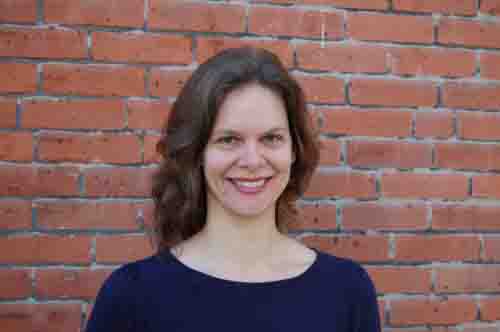
Beverly Gage
After receiving a record number of applications, the Brady-Johnson Program in Grand Strategy sent out admissions notices to Yale undergraduate and graduate students on Friday informing them of their acceptance to Studies in Grand Strategy, a yearlong interdisciplinary course beginning in January.
According to Director of the Grand Strategy Program and history professor Beverly Gage ’94, the program received over 170 applications, a 20 to 30 percent increase from the previous record high. Of those 170 applications, the program accepted 38 students in anticipation of a 36-student cohort, and students are required to declare their intent to join the program by Dec. 15.
“[The increase in applications] is exciting to me,” Gage said. “It shows that there’s real demand and interest for the kinds of things that grand strategy teaches, which are thinking in big ways about global politics and social change and using the tools of history and the humanities to do that.”
The program, which involves both classroom study and summer research, has traditionally focused on statecraft, geopolitics and military strategy. Though these concentrations will remain an integral part of the program, this year’s curriculum will also focus on how to create social change in relation to both domestic and social issues. It will also explore how to deal with large-scale issues like climate change that require strategies of international cooperation rather than competition.
John Gaddis, professor of military and naval history and one of the founders of the Grand Strategy program, called the rise in enrollment “a strong vote of confidence” for Gage and Ian Johnson, the associate director, who both started their tenures this semester. Gaddis added that he “couldn’t be more pleased.”
As a long term goal for the program, Gage hopes to combat “the great crisis in American politics,” the lack of dialogue across lines of differences of all sorts, including party lines.
“One of my goals is to make the grand strategy program a place where students from different backgrounds, different political points of view and different aspirations sit together in a sustained way and talk to each other about things that really matter,” Gage said.
Andi Peng ’18, a current student in the program, said that the program leadership has made an active effort to reach out to increase both the racial and academic diversity of the group, which she said was reflected in the increase in applications.
Benjamin Rasmussen ’18, another student in the program and a member of its student advisory group, said the program “ratcheted up” advertising this year to recruit a broader range of students, pushing the grand strategy deadline messages through college dean’s offices, cultural houses and other undergraduate institutions.
A historian of domestic American politics and social movements, Gage said that grand strategy is not only used in elite institutions but is also an important tool for social movements. Gage attributed some of the rising interest in the program to the current state of the U.S. political system.
“I think there is … a desire to step back a little bit from the daily tweet storm and newsfeed and to really think in bigger ways about what the state of our institutions is, what our national purpose should be, what the world is going to look like and should look like in 20 years,” Gage said. “I think that those questions have an urgency right now that they don’t have at every historical moment.”
The structure of the in-class portion of the program will also change this upcoming semester. Previously, students attended one seminar a week, with a different academic or practitioner leading each session. Now, Grand Strategy students will meet twice a week, one day for a seminar and the other for a lecture. The lecture will still feature various academics and practitioners, with a main lecturer and a respondent each week. But Gage and political science professor Bryan Garsten will teach the seminar, which Gage said will afford students a more “consistent pedagogical experience.”
Rasmussen said this change will allow students to form more meaningful connections with one particular professor during the seminar while still getting to listen to a range of perspectives from other professors and lecturers.
Peng praised Gage, calling her a “truly warm, friendly professor.”
“I imagine as Gage goes into her first full year as director that you’ll see a far more distinct shift that’s more her style,” Peng said. “There were a lot of people who doubted whether the program would continue on to be what it was, considering that her background is not in this big power politics that the previous professors have, but I think she manages to incorporate aspects of grand strategy that we wouldn’t have studied otherwise.”
The Grand Strategy program was founded in 2000.
Adelaide Feibel | adelaide.feibel@yale.edu







